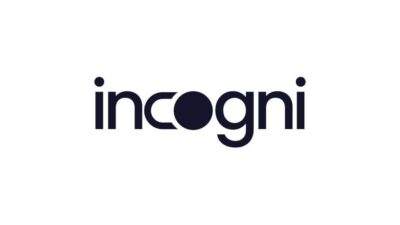Our personal data is a prized asset that’s traded online without our knowledge. Here’s how to take back some agency – and why it’s increasingly important to do so
What is a digital footprint?
Just as we all leave a carbon footprint, we also have a digital footprint. Every search we make, site we visit, post we like and song we download leaves a data trail behind.
This data reveals a lot about us, from our likes and dislikes to our religious and political beliefs, sexual orientation, medical conditions and income. That’s valuable intel that people are prepared to pay good money for.
How much data do we produce?
According to a report by the cloud software firm Domo, every 60 seconds, Facebook users like 4m posts, streamers watch 43 years’ worth of content and Airbnb guests book 747 stays. All told, a single internet user produces on average 146,880MB of data per day.
Why does data security matter?
While legitimate businesses use anonymised data to create targeted ads and improve the browsing experience, some unscrupulous operators bypass legal routes to buy personal data from data brokers. These are companies or individuals who harvest, analyse and trade personal data, selling to third parties without our consent.
This leaves users exposed to privacy and security concerns, including cold calls, scams, spam, cyber-attacks and identity theft.
A study by the market research and consulting firm Knowledge Sourcing Intelligence estimated the global data broker market at $336.7bn (£263bn) in 2022. It is predicted to grow at a rate of 7.6% a year to $561.5bn (£438.7bn) by 2029.
Our personal data can be accessed by advertisers, recruiters, employers, insurance companies, banks, credit providers, governments and crooks. Little wonder they call it ‘the oil of the digital economy’.
Not all data is created equal, right?
“It’s important to consider the texture of data, both the quantity of data and the quality of the overall volume of data,” says Dr Steven Hai, assistant professor at Xi’an Jiaotong-Liverpool University, and affiliate fellow at King’s Institute for Artificial Intelligence, London.
“Simply browsing the BBC website might generate a large volume of data, but using unauthorised or unregulated AI-generated content platforms to share sensitive information can lead to significant issues including data leaks, information pollution, and misinformation diffusion.”
Does the rise of AI present new risks?
“AI makes data security even more critical as it increases the sources of risk,” says Risto Uuk, EU research lead at the Future of Life Institute, a nonprofit. “Firstly, AI systems require a lot of data, vastly increasing the number of vulnerable targets in the event of a breach. Secondly, AI itself can be used to supercharge the ability of malicious actors to analyse and interpret data.
“Finally, AI can be used to automate and execute large-scale cyber attacks, and allow criminals to tailor them to their targets. There already exist capabilities to conduct personalised phishing campaigns, impersonate trusted co-workers with voice or image cloning and create customised fake news en-masse using both public and private information.”

Every search we make, site we visit, post we like and song we download leaves a footprint. Image: iStock
Is the law on my side?
The EU and UK’s General Data Protection Regulation (GDPR) is the world’s toughest data privacy law. It governs how our data can be used, processed and stored, with hefty fines issued to companies that do not comply. Other governments have adopted similar measures, such as Japan’s Act on the Protection of Personal Information (APPI) and California’s Delete Act.
Levels of protection vary from country to country. In Europe, non-GDPR countries include Russia, Turkey, Belarus and Ukraine; while, globally, some countries have no legislation at all, including Myanmar and Afghanistan.
Legislation is important because it protects consumer rights, human rights and civil liberties, and shields vulnerable internet users such as children. However, some businesses complain that compliance costs are burdensome. Legislation is also hard to enforce, as data flies across international borders.
What can we do to take control of our data?
There are simple things we can do to protect ourselves. Darius Belejevas, CEO of Incogni, a data removal service, advises sharing only essential information online and avoiding creating unnecessary online accounts.
“If you do create one, set a strong and unique password, preferably with the use of a trusted password manager, like NordPass or Bitwarden,” he says. “We also recommend that you block unnecessary cookies – especially cross-site tracking cookies – use a privacy-focused browser like Firefox, an ad blocker like uBlock Origin, and a trusted virtual private network (VPN) like Surfshark to protect your IP address.”
Reputable antivirus software is also a must, as is regular housekeeping, for example removing information from Google search results, removing old accounts and deleting history from platforms such as Facebook and YouTube.
Can we erase our digital footprint?
By Incogni’s estimation, it would take an individual around 304 hours to delete their data. Incogni works on subscribers’ behalf, submitting opt-out requests to data brokers and search sites, to demand they remove unauthorised personal information from their databases. Incogni repeats the process regularly, rechecking old and new data brokers so that their clients’ data is not stored again.
“A service like this prevents your personal data from being sold and reduces the likelihood that you’ll fall victim to cybercrime and spam,” says Belejevas.
Main image: Gorodenkoff/iStock
Support solutions in 2024
Positive News is helping more people than ever to get a balanced and uplifting view of the world. While doom and gloom dominates other news outlets, our solutions journalism exists to support your wellbeing and empower you to make a difference towards a better future.
But our reporting has a cost and, as an independent, not-for-profit media organisation, we rely on the financial backing of our readers. If you value what we do and can afford to, please get behind our team with a regular or one-off contribution.
Give once from just £1, or join 1,400+ others who contribute an average of £3 or more per month. You’ll be directly funding the production and sharing of our stories – helping our solutions journalism to benefit many more people.
Join our community today, and together, we’ll change the news for good.







